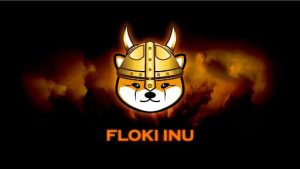Giddy’s smart wallet will boost interoperability within the DeFi ecosystem

Key takeaways
The DeFi ecosystem has suffered huge losses over the past two years due to the ongoing bear market.
Giddy’s DeFi smart wallet seeks to solve the problems of interoperability and ease of use within the DeFi ecosystem.
Eric Parker, the CEO of Giddy, believes that the DeFi ecosystem will ultimately become Finance 2.0
Binance Smart Chain (BNB) and Ethereum were some of the leading blockchains for DeFi projects. Despite the major growth recorded by the DeFi ecosystem in recent years, one of the major issues that remain is interoperability. Not many projects are working on solving interoperability within the DeFi ecosystem, a solution that would make it easier to move tokens between various blockchains.
Giddy, a provider of a self-custody smart wallet, is making a mark in this area. The company’s DreFi smart wallet integrates with some of the best projects in DeFi and is set to increase interoperability and ease of use even more.
Coinjournal sat down with Eric Parker, the CEO of Giddy, to discuss the company’s plans after recently raising $6.9 million in a funding round.
Coinjournal (CJ): Giddy recently raised $6.9 million and will use the funds to boost DeFi adoption. How does Giddy intend to improve on some of the existing DeFi solutions or expand its services?
Eric Parker (EP: We’ve developed a ton of new tech already- from our self-custody no-seed-phrase private key solution to our Autogas and our one-tap staking, all of this works together to make DeFi feel seamless for brand new and experienced crypto users alike. Giddy currently integrates with some of the best projects in DeFi, and we’ll be using this funding to increase interoperability and ease-of-use even more. Next up we’re going to add more chains, integrate new DeFi protocols, add more utility to our token, add new fiat off-ramps, and bolster our private key platform for more ease and security. We’ve shown we can build the concept and scale it. Now it’s all about extending our DeFi smart wallet across all aspects of DeFi.
CJ: Could you talk more about the involvement of your strategic investors in this funding round, and how their expertise will contribute to Giddy’s growth and development?
EP: We have some really incredible advisors and strategic investors, who come from backgrounds and have experience at some of the biggest consumer experience brands like Disney, Fortnite, Traegar Grills, and more. What we love is that they have “been there, done that” when it comes to creating incredible consumer experiences – something we think that’s been lacking in the crypto space, and is a prerequisite to true mass adoption. So much of crypto has been focused on infrastructure technology, and while that’s certainly needed, we think there’s a huge opportunity to solve the “last mile” problem by putting tech in actual user’s hands and focusing on the end user experience to an extreme degree. We’re beyond lucky and very grateful to have these advisors helping us make something really special happen here.
CJ: Can you discuss how Giddy’s Autogas feature works and how it addresses the issue of gas fees in DeFi transactions?
EP: Pretty much anyone who has interacted with the blockchain knows the pain of running out of gas, or having to hold some arbitrary amount of tokens just to pay network fees. Giddy’s Autogas feature is a first for crypto users and is a game changer when you experience it. As long as you hold USDC, GIDDY token, or MATIC in your wallet, you can swap, stake, or send any token on the Polygon chain with no additional cost or hassle. More token types and chains are coming soon, which means with the Giddy smart wallet, you’ll never have to worry about running out of gas again, no matter what chain you’re on.
CJ: How does Giddy ensure the security of its users’ private keys, especially with the increasing prevalence of hacking and cyber attacks in the crypto industry?
EP: Great question. So first off, it’s important to mention that under the hood, Giddy is a self-custody wallet, which means it’s always your keys, your crypto. You can export your private key, and verify all transactions as they happen on the blockchain. But what we’ve done is eliminate the need to write down your seed phrase and have to store it somewhere, which, as you know, is a dangerous single point of failure for many users.
When you download our app and go through the one-minute setup process, Giddy is actually splitting your private key into multiple secure shares that are owned and controlled by you, using several factors that you’re familiar with, such as your email login, your phone, an Authenticator app, etc. This allows you to recover your wallet as long as you control at least two of your shares – meaning if you ever lose your device or forget a password, your money can still be recovered as long as you have the other shares. And crucially, if one of your shares is ever compromised, your funds are still safe because it always takes at least two factors to get your wallet back. This makes your wallet as convenient as a hot wallet, while being just as secure (if not more so) than a cold wallet. With Giddy, you can say goodbye to lost seed phrases.
CJ: What is the Giddy MPC technology, and how exactly does it work?
EP: We dove into how it works in the last question, but this is a good time to talk a bit about Multi-Party Computation (MPC). Most MPC implementations utilize other individuals, such as a family member or friend, to be a guardian of a share of your private key. That’s where Giddy stands out – our implementation gives users complete control over their wallet recovery, all while using security factors that you own. So rather than having to go to Uncle Bob to unlock your MPC wallet, with Giddy, you always have complete control. How it works feels incredibly natural, just like using any other Web 2.0 mobile app – except you’re getting the full benefits and tech behind a real self-custody Web 3.0 wallet.
CJ: Giddy’s unique solution implements elements of the Ethereum Foundation’s guidelines in the new ERC-4337 standard. What does Giddy intend to achieve with this solution?
EP: The Ethereum Foundation released the new ERC-4337 standard to help improve end users’ experience on the Ethereum network, but this didn’t just happen overnight. Vitalik and other key Ethereum developers have been talking about the core principles behind ERC-4337, e.g. account abstraction, for years. The other thing to know about ERC-4337 is that it’s a set of guidelines to help developers, but developers still have to actually build the technology themselves. The Giddy smart wallet has been in development for almost 18 months, and we started with the end user in mind. So it’s no wonder that we’ve actually arrived at many of the same conclusions set out and defined in ERC-4337. We set out to solve the same challenges outlined in ERC-4337 before it was fully baked, and we’re already ahead of the game by implementing some of the core features spelled out in the proposal, such as AutoGas and one-tap staking.
CJ: Giddy has been chosen for the Robinhood Connect Program. What role will Giddy play in the program, and how will Robinhood Connect boost crypto adoption?
EP: We had a chance to meet with the Robinhood Connect team at ETH Denver, and quickly hit it off. As you can probably tell from this interview, we’re obsessed with user experience, and so are they, which is why Robinhood Connect fits perfectly into our platform. We’re happy to be one of the first wallets to integrate Robinhood Connect as a launch participant, and see it as a great channel for onboarding users into crypto going forward through its ease of use.
CJ: What do you think about the current DeFi ecosystem, and where do you see the sector in the next decade?
EP: Yeah, there has certainly been a lot of discussion about the state of DeFi, particularly coming out of the ‘DeFi Summer’ of 2021 and into the down cycle of 2023. I’m seeing major investments into the foundational infrastructure of what will ultimately become Finance 2.0. While most of the million-percent APY inflationary IDOs (I like to call them Ponzi speedruns) have gone away, we’re now seeing fundamentally sound business models operating on-chain, generating real yield and rewriting legacy financial protocols into modern Web 3.0 equivalents. I think over the next decade, we’ll see quite a bit of market consolidation – right now most of the tech is fractured, and interoperability isn’t quite where it needs to be yet. The best user experiences will rise to the top because that’s what will drive adoption as people look for how to get on board with the finance 2.0 movement. Also, smart regulation will allow the entire ecosystem to build trust within the nations that embrace it, whereas those that don’t will be left behind.















